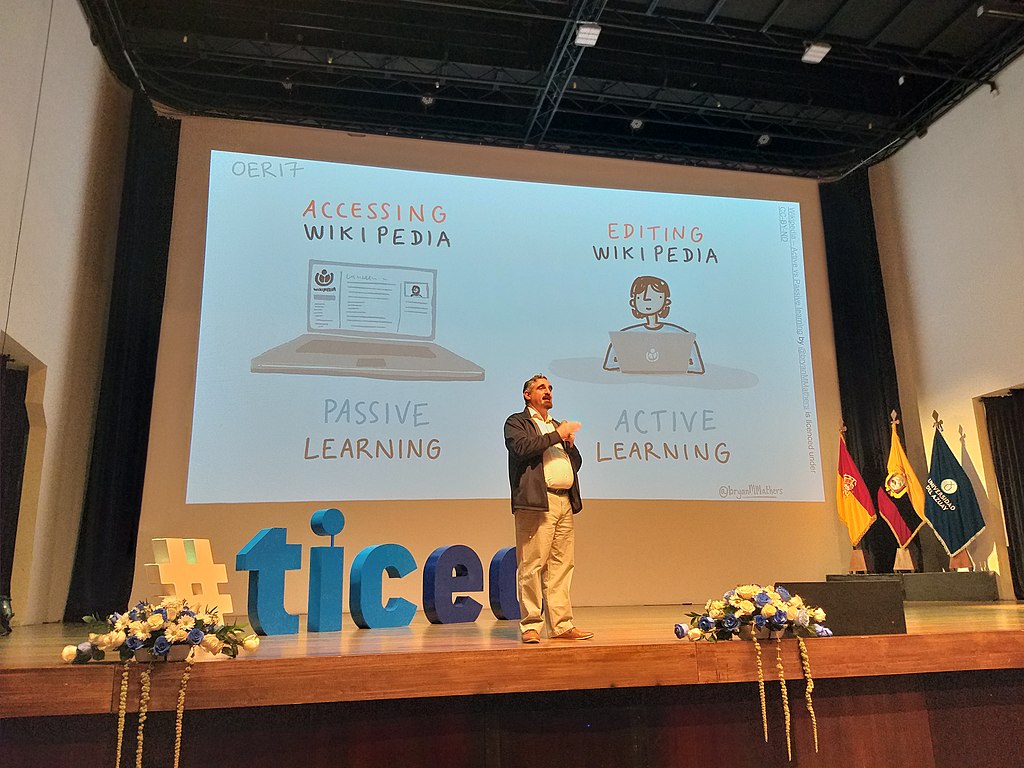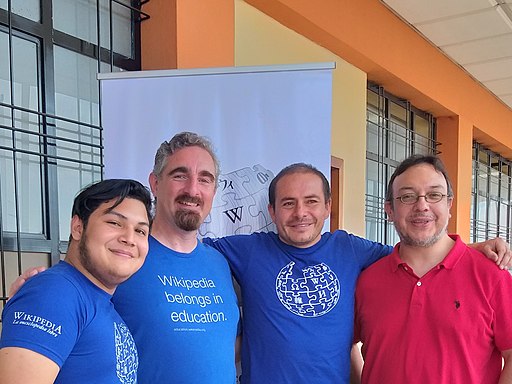
Date 28 November 2019
Author Edjoerv
Vahid really inspiring person, wikipedian and open education visioner! He is currently employed by Learning Equality, a non-profit organization dedicated to bringing digital learning resources to schools and communities that are offline, where he contributes to the contents team.
Tell us the story between you and open knowledge? How it all started and what are the main projects you are involved in?
I am a believer that the strongest form of oppression is keeping people ignorant, and that, conversely, education is the process that unfolds humanity’s wings to improve and make the world better. This is perhaps why, every time i read or see something that connects to open learning, i am drawn to it. Once you understand that human achievements happen in a social context, within history, and accept becoming human demands accepting mutual interactions, open knowledge is the only reasonable path, in my mind.
And how Wikipedia came up in your life?
I was connected to some of the techie community in Quito, Ecuador, and was invited to a breakfast with some friends i knew from that community. As it turned out, the topic of that meeting was to establish the Ecuadorian chapter. I had been learning about educational technology for some time, and so my main question was: “Is there something that can be done to connect education and Wikipedia?” Little did i know! 😀 So i read and learned about Wikipedia+Education and started promoting it in Quito and Ecuador. I naturally became the “Education Coordinator/spokesperson” for what became the Wikimedians of Ecuador User Group. Until then i had made a couple of small anonymous edits, and from then on, my main contribution to the Wikimedia movement has been engaging with educators and helping them understand the value of Wikimedia in education. I sincerely believe that the active integration of Wikimedia in educational processes is transformative.
And how Wikipedia complements the open culture and open education movement?
From a Western perspective, every culture needs an encyclopedia, and so does the open culture! The idea that culture can both be public and open while respecting the rights of the authors is how culture actually works. Wikipedia has proved that volunteers, with a minimalist -and even outdated- interface will bring together their knowledge and capabilities for the benefit of humanity. It’s an amazing testimony of humanity at its best when the people involved collaborate in good faith.

Date 30 November 2019, 11:53:59
Source Own work
Author Edjoerv
How open education and understanding about it change the world we live in?
Open education is an opportunity to re-think how we do education. Though it gained traction around the issue of making educational materials at near 0 cost, to me its when we discuss how educational systems can work in the 21st century (instead of the 19th century) that open education can exert its greatest benefits.
We have built educational settings (schools, universities) as fortresses that are disconnected from their immediate communities, and opening education means breaking those walls as we share contents, engage in dialogue, and learn to produce meaningful knowledge, from local to global.
Where we can read more – please give some relevant links and books on this topic?
One of my big references for Open education is the Open Education Consortium https://www.oeconsortium.org/ where a lot of the academic community meets and discusses the latest topics. They also have https://www.oeglobal.org/ which is connected to the OE consortium.
For those that are interested in Open education in practice, i suggest looking at OER-enabled Pedagogy, which is one particular application of open education. You can find many links about it in Google Scholar, and on Twitter.
Your greeting to all wikipedians, who will read this interview 🙂
I am very thankful for the opportunity to share some of my thoughts with the Bulgarian WM community, and i have to say i miss CEE meetings and their never-boring dynamics! I hope everyone is well and taking care of themselves in this testing period in our lifetimes.